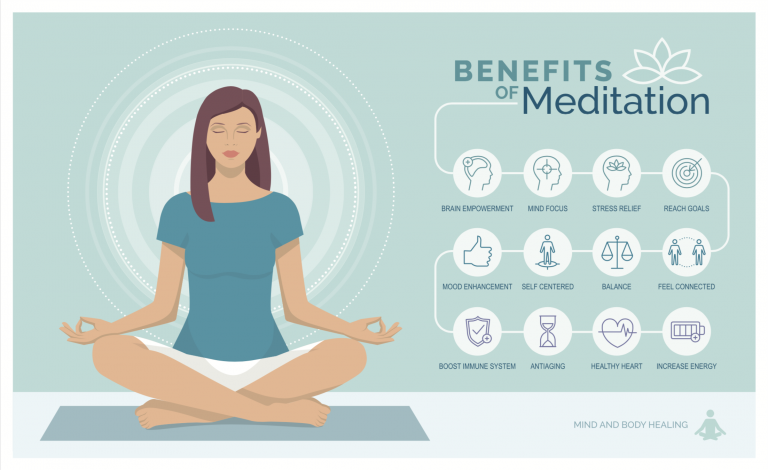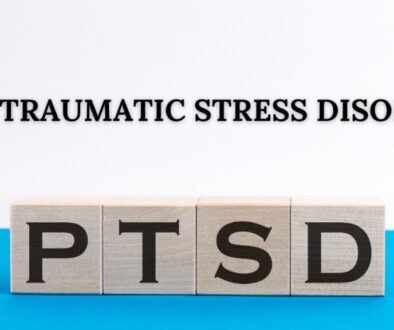Exploring the Benefits of Meditation for Mental Clarity
Mental clarity is a state of mind where one experiences a heightened sense of awareness, focus, and calmness. The benefits of meditation for mental clarity are numerous, as it helps calm the mind and reduce stress, promoting a sense of peace and focus.
It allows individuals to think clearly, make rational decisions, and effectively manage their emotions. In our fast-paced and demanding world, achieving mental clarity has become a challenge for many. However, meditation offers a powerful and accessible tool to attain and cultivate this clarity.
Meditation has been practiced for centuries in various cultures and religions, and its benefits extend beyond just relaxation. In recent years, scientific research has shed light on its positive impact on mental well-being, with a particular emphasis on mental clarity.
How Meditation Can Help Achieve Mental Clarity
Meditation is a practice that involves training the mind to focus and redirect thoughts. It is often associated with relaxation and stress reduction, but it offers far more than that. Through consistent meditation practice, one can achieve a state of mental clarity characterized by heightened awareness, improved focus, and a calm and centered mind.
Reducing Stress and Anxiety through Meditation
Stress and anxiety are common obstacles to mental clarity. The constant worry and racing thoughts can cloud our minds and hinder our ability to think clearly. However, meditation provides a powerful tool for reducing stress and anxiety. By practicing mindfulness and bringing our attention to the present moment, we can break free from the cycle of stress and cultivate a sense of calm and clarity.

Enhancing Focus and Concentration
In a world filled with distractions, maintaining focus and concentration is crucial for mental clarity. Meditation helps train the mind to stay present and focused, improving our ability to concentrate on tasks and avoid getting lost in a sea of thoughts. Regular meditation practice strengthens the neural pathways associated with attention, resulting in improved focus and enhanced mental clarity.
Boosting Creativity and Problem-Solving Abilities
Mental clarity is not just about clear thinking; it also involves tapping into our creative potential and finding innovative solutions to problems. Meditation has been shown to enhance creativity and problem-solving abilities by quieting the mind and reducing mental clutter. When we give ourselves space to step back from the busyness of life through meditation, fresh ideas, and insights have room to emerge, leading to improved clarity in finding creative solutions.
Improving Memory and Cognitive Function
Remembering information and processing it effectively are crucial aspects of mental clarity. Meditation has been found to improve memory and cognitive function by increasing blood flow to the brain and stimulating the growth of new neurons. This enhanced neural activity improves our ability to retain information, think critically, and make decisions with clarity.
Cultivating Emotional Stability and Resilience
Emotional turbulence can cloud our minds and prevent us from thinking clearly. Meditation helps cultivate emotional stability and resilience by increasing self-awareness and regulating our emotions. Through mindfulness practice, we learn to observe our thoughts and emotions without judgment, allowing us to respond to situations with clarity and composure.
Increasing Self-Awareness and Mindfulness
Self-awareness is a fundamental aspect of mental clarity. Through meditation, we develop a deeper understanding of our thoughts, emotions, and patterns of behavior. By becoming more self-aware, we can identify and let go of unhelpful thought patterns or emotional triggers, allowing for greater mental clarity and a more authentic way of being.
Promoting Better Sleep and Relaxation
Quality sleep is essential for mental clarity. However, stress and racing thoughts can often disrupt our sleep patterns. Meditation promotes relaxation and calms the nervous system, making it easier to unwind and fall asleep. By incorporating meditation into our bedtime routine, we can improve the quality of our sleep, leading to increased mental clarity and alertness during the day.
Enhancing Overall Well-Being and Happiness
Mental clarity is not just about thinking clearly; it also contributes to our overall well-being and happiness. By reducing stress, improving focus, and cultivating self-awareness, meditation fosters a positive mindset that supports mental clarity and a sense of fulfillment. With regular practice, we can experience increased overall well-being and happiness in all areas of our lives.

Different Meditation Techniques for Mental Clarity
Mental clarity is vital for leading a well-balanced life amidst the chaos of the modern world. In order to achieve mental clarity, individuals often turn to meditation as a powerful tool.
Mindfulness Meditation
Mindfulness meditation is a widely practiced technique that involves being fully present in the moment and non-judgmentally observing one’s thoughts and sensations. To practice mindfulness meditation, find a quiet space, sit comfortably, and bring your attention to your breath. As thoughts arise, acknowledge them without judgment and gently redirect your focus to your breath. By cultivating mindfulness, you can develop mental clarity, gain insights into your thoughts, and increase self-awareness.
Loving-Kindness Meditation
Loving-kindness meditation, also known as metta meditation, focuses on developing feelings of love and compassion towards oneself and others. This practice involves repeating specific phrases or mantras, such as “May I be happy, may you be happy.” By cultivating feelings of love and kindness, individuals can experience enhanced mental clarity, improved relationships, and a greater sense of well-being.
Transcendental Meditation
Transcendental meditation is a technique that uses a personalized mantra to achieve a deep state of relaxation and inner peace. This practice involves sitting comfortably with closed eyes and silently repeating the mantra, allowing the mind to settle into a state of transcendent awareness. Transcendental meditation has been found to reduce anxiety, improve focus, and promote mental clarity.
Zazen Meditation
Zazen meditation is a traditional Zen Buddhist practice that focuses on mindful sitting. To practice zazen meditation, find a quiet and comfortable space, assume a stable posture, and bring your attention to your breath. Allow your thoughts to come and go without attachment or judgment. This technique cultivates mental clarity, mindfulness, and a deep sense of presence.
Mantra Meditation
Mantra meditation involves repeating a specific sound or phrase to quiet the mind and achieve a state of focused awareness. Choose a mantra that resonates with you and silently repeat it during your meditation practice. Mantra meditation enhances mental clarity, deepens concentration, and fosters a sense of inner peace.
Walking Meditation
Walking meditation combines the physical act of walking with mindfulness. Find a quiet path or space and walk slowly, paying attention to each step, the sensation of your feet touching the ground, and the movement of your body. Walking meditation can help clear the mind, improve focus, and provide an opportunity for self-reflection.
Visualization Meditation
Visualization meditation involves using mental imagery to create a calming and peaceful state of mind. Find a comfortable position, close your eyes, and visualize a serene and beautiful place. Engage all your senses and immerse yourself in this imaginary environment. Visualization meditation enhances mental clarity, reduces stress, and promotes relaxation.
Body Scan Meditation
Body scan meditation involves systematically focusing on each part of the body, bringing awareness and relaxation to each area. Start from the top of your head and slowly move down, paying attention to any tension or sensations you may feel. Body scan meditation promotes physical and mental relaxation, increases body awareness, and enhances mental clarity.
Guided Meditation
Guided meditation involves following the guidance of a meditation teacher or recorded audio to facilitate relaxation and focus. Choose a guided meditation that aligns with your goals, whether it’s relieving stress, enhancing mental clarity, or improving sleep. Guided meditation provides a structured approach to meditation and can be helpful for beginners.
Transcendental Breath Meditation
Transcendental breath meditation combines deep breathing techniques with focused awareness. Find a quiet space, sit comfortably, and take slow, deep breaths. As you inhale, imagine breathing in positive energy and clarity. As you exhale, visualize releasing any negativity or tension. Transcendental breath meditation helps calm the mind, improves focus, and promotes mental clarity.
Qi Gong Meditation
Qi Gong meditation is a practice that combines gentle movements, postures, and focused breathing to cultivate Qi or life energy. Find a quiet space, assume a relaxed posture, and move your body with intention and awareness. Qi Gong meditation enhances mental clarity, balances emotions, and promotes overall well-being.
Kundalini Meditation
Kundalini meditation focuses on awakening the dormant spiritual energy within the body. It involves combining breathwork, chanting, and specific poses to activate the Kundalini energy. Kundalini meditation promotes mental clarity, spiritual growth, and an increased sense of vitality.
Tips for Getting Started with Meditation Practice
Getting started with meditation can feel overwhelming for beginners. However, with the right approach and mindset, anyone can embark on this transformative journey towards mental clarity. Here are some tips to help you get started:
- Start small: Begin with just a few minutes of meditation each day and gradually increase the duration as your practice deepens. Consistency is more important than the length of your sessions.
- Experiment with techniques: There is no “one size fits all” when it comes to meditation. Try out different techniques and find one that resonates with you. Whether it’s mindfulness meditation, breath awareness, or loving-kindness meditation, choose what feels most comfortable and effective for you.
- Be gentle with yourself: Meditation is not about perfection or achieving immediate results. It is a practice of self-discovery and self-care. Approach each session with a gentle and non-judgmental mindset.
- Seek guidance if needed: If you are struggling with establishing a meditation practice, consider seeking guidance from experienced meditators or mindfulness teachers. They can provide valuable insights and support on your meditation journey.
- Make it a habit: Consistency is key to reaping the benefits of meditation. Set a regular time for practice, create a dedicated meditation space, and make it a non-negotiable part.

Conclusion: Benefits of Meditation for Mental Clarity
In a world filled with distractions and mental clutter, finding mental clarity can be challenging. However, incorporating different meditation techniques into our daily routine can provide a powerful antidote. Whether you choose mindfulness meditation, transcendental meditation, loving-kindness meditation, or guided meditation, each technique offers a unique path toward mental clarity and inner peace. So, take a deep breath, let go of the noise, and allow meditation to guide you toward the serenity and mental clarity you seek.
Also Read:



